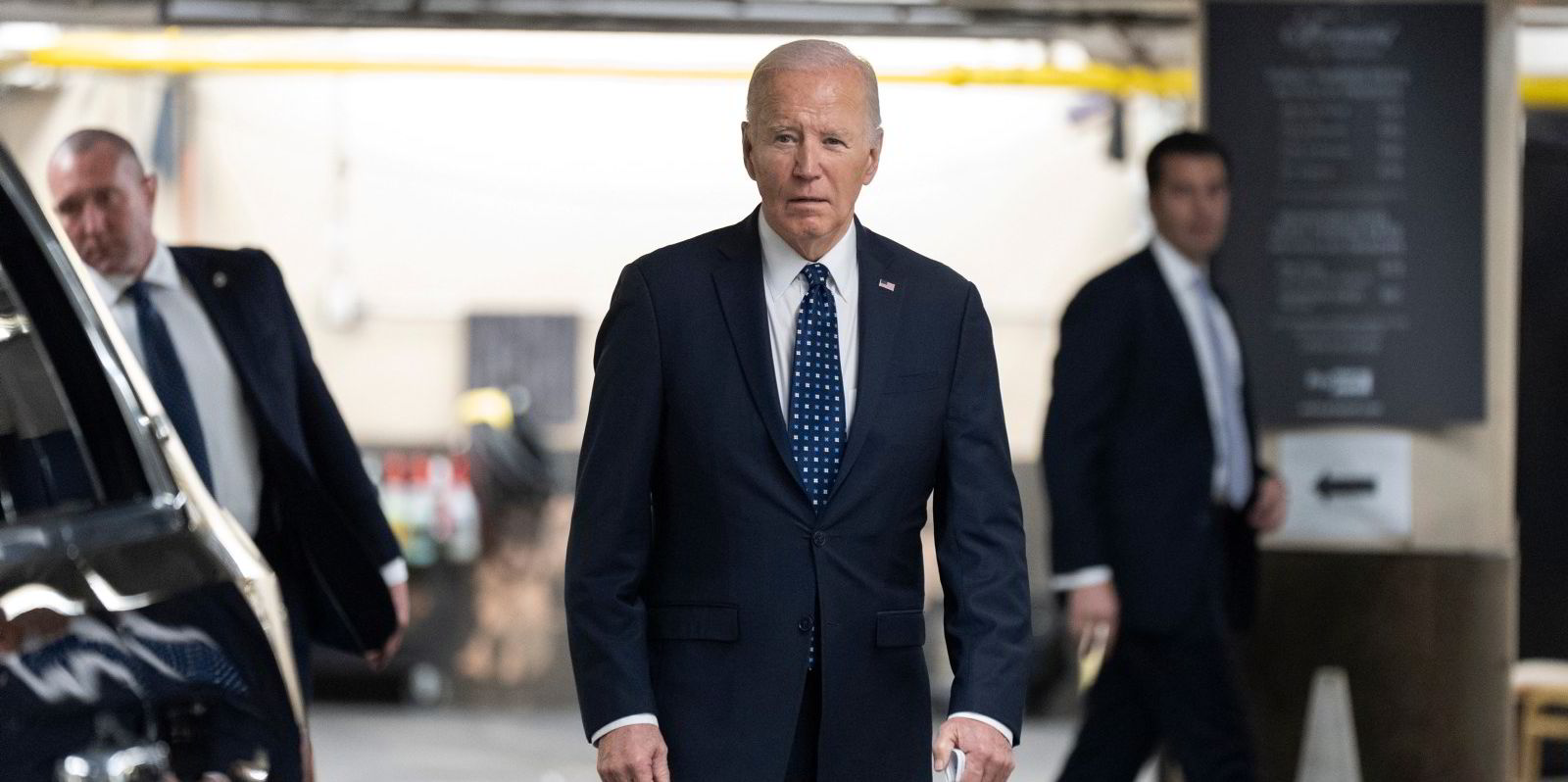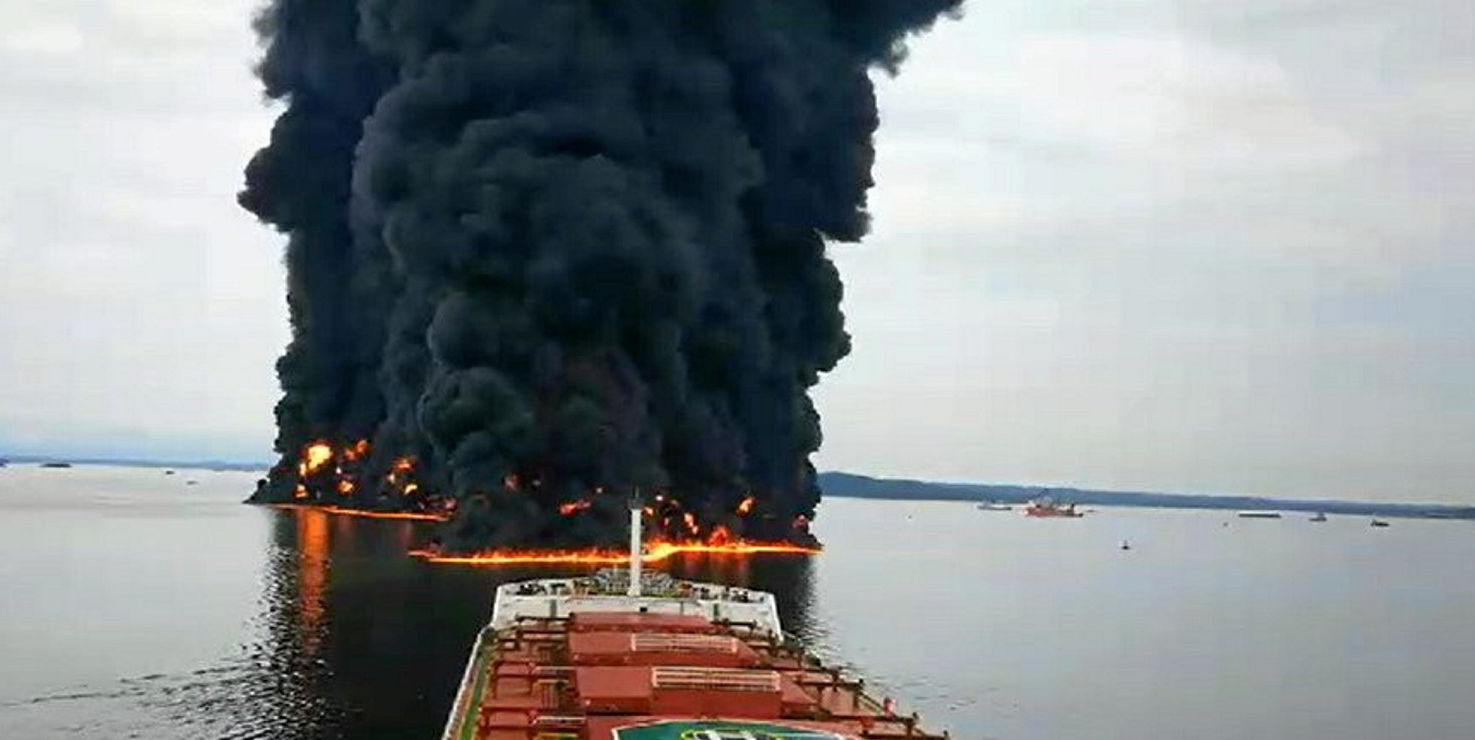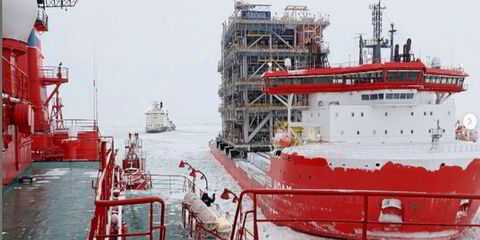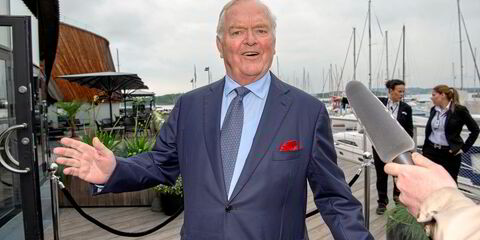The US and European Union have unveiled a swathe of sanctions to mark the two-year anniversary of Russia’s invasion of Ukraine, with blacklisted entities including Russian shipyards, multimodal logistics firms and at least 12 ships.
US President Joe Biden has announced what he described as 500 sanctions and slapped export restrictions on “nearly 100 entities” as the Treasury Department unveiled a long list of newly-blacklisted companies and vessels.
He said the export restrictions focused on companies “providing backdoor support for Russia’s war machine”, to try to reduce Moscow’s energy revenues.
Biden said the new US sanctions also respond to the death in a Siberian prison last week of Navalny, the Russian anti-corruption activist.
“These sanctions will target individuals connected to Navalny’s imprisonment as well as Russia’s financial sector, defence industrial base, procurement networks and sanctions evaders across multiple continents,” the president said.
Among the companies targeted by the US were the company that controls Russia’s Zvezda Shipbuilding Complex, according to a list by the Treasury Department’s Office of Foreign Asset Control (Ofac).
The yard complex was cited for its role in Russia’s military-industrial manufacturing base. The companies in this story could not be immediately reached for comment after business hours in Russia.
Also listed was Smart LNG, formally dubbed Modern Marine Arctic Transport, the Russian joint venture set up to own a stack of newbuildings for the Arctic LNG 2 project that were to be built at Zvezda.
Both companies and civil engineering firm Novatek Murmansk were targeted for their role in the Arctic LNG 2 project, the US State Department said on Friday.
TradeWinds also reported that the sanctions targeted the shipowning entities that control three LNG carrier newbuildings for the project.
And Washington announced sweeping sanctions against St Petersburg-headquartered shipping giant Sovcomflot and 14 of its tankers, which deputy Treasury secretary Wally Adeyemo described as the “next step” after the price cap on Russian oil limited Moscow’s oil profits.
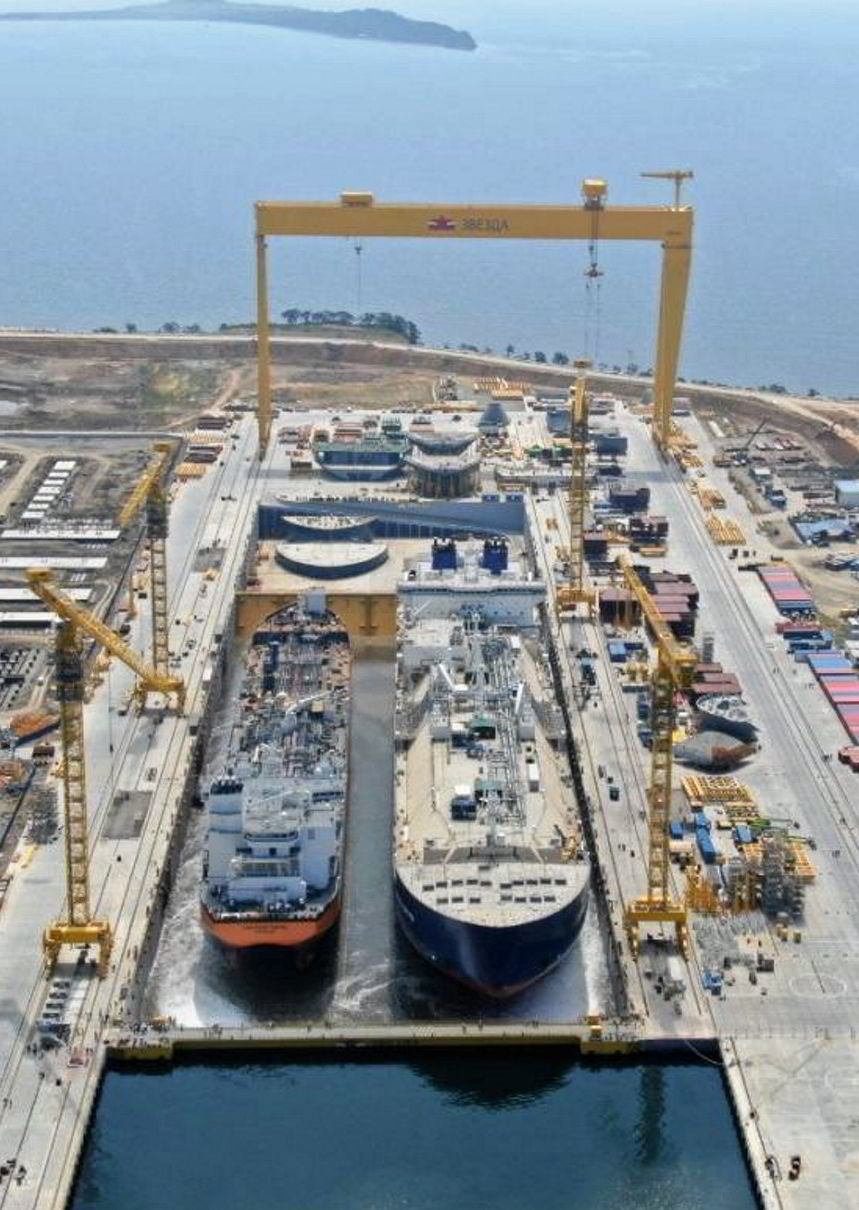
Ofac blacklisted 12 vessels on Friday, made up of several research vessels, a trio of general cargo ships and a drillship.
The general cargo ships were targeted for their role in the arms trade between Russia and Iran, the state department said.
Among them was the 3,060-dwt Skiv-V (built 1984). Linked to the vessel is Russia’s Ladoga Shipping. Data from Equasis shows the Russian-flag ship has been owned and managed by a company called Ladoga since 2014.
Ofac also put Russia’s Dalir on its sanctioned list for its role in transporting military cargoes to Iran. Equasis data shows the company is the owner of two general cargo ships — the 2,800-dwt Alireza 1 (built 1965) and 2,650-dwt Baltiyskiy-111 (built 1980) — that were also added to the sanctions list.
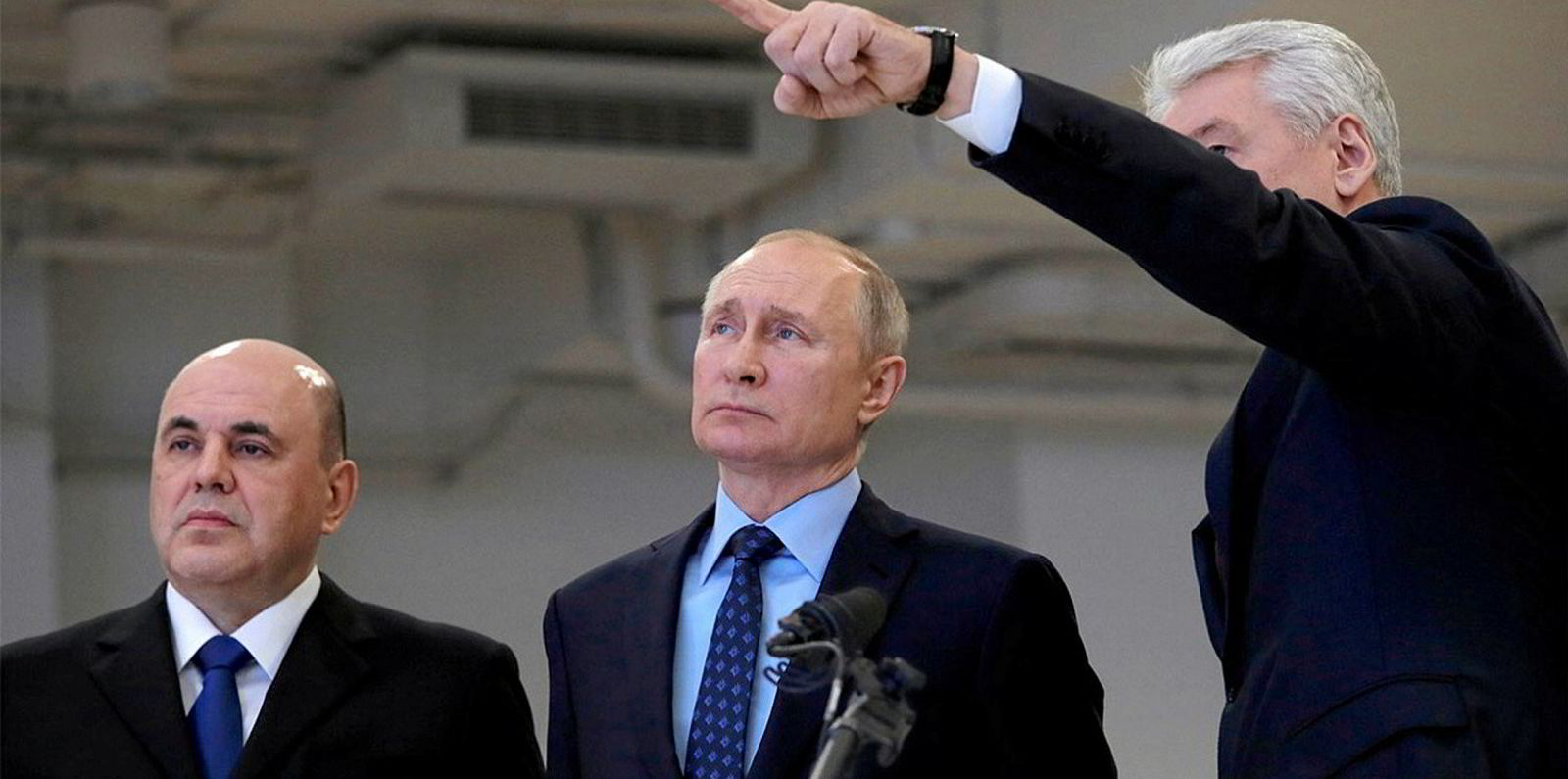
The US sanctioned research vessels in the fleet of Rosgeologia, a Russian state-owned company also known as Rosgeo that provides geological exploration services. Companies owned and managed by the firm were also sanctioned.
The agency blacklisted Polar Marine Geosurvey Expedition and its 4,430-gt research vessel Akademik Aleksandr Karpinskiyt (built 1984).
Geophysical survey company Sevmorneftegeofizika also made the list alongside five of its research vessels.
Ofac added deep sea explorer Yuzhmorgeologiya with two of its research ships.
The agency also blacklisted the 3,580-gt drillship Bavenit (built 1986), which Equasis lists as owned by Russia’s government.
The EU published its own list on Friday focused on the military and defence sectors that included more than 30 Russian ship design, repair and building centres.
Among them were Russia’s state shipyard group United Shipbuilding Corp, which has already been blacklisted by the US and UK.
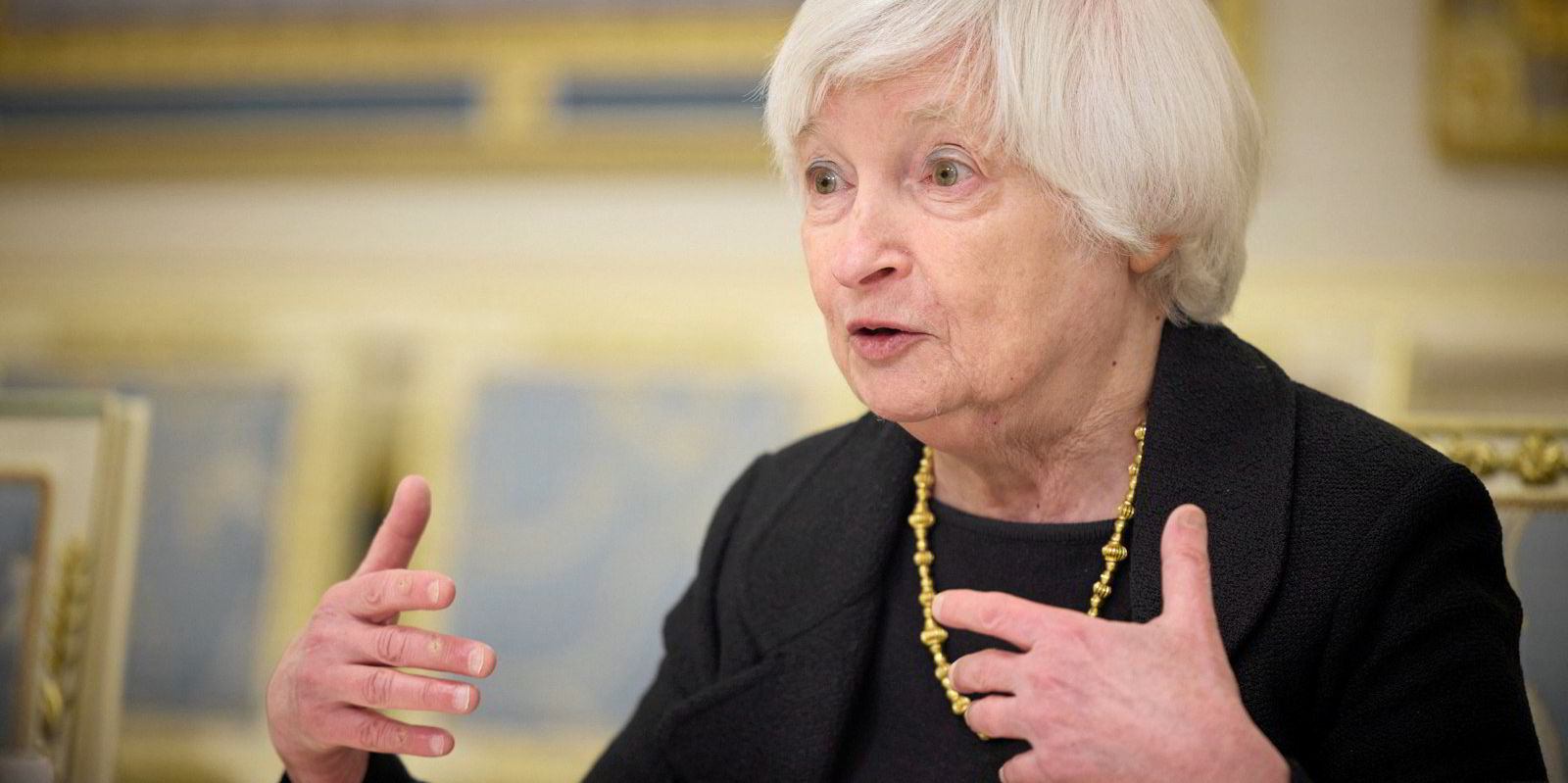
The EU and US announcement came a day after the UK announced its own package of new sanctions, blacklisting Dubai tanker manager Fractal Marine, Istanbul-based Beks Ship Management and the Arctic LNG 2 project.
The latest sanctions are expected to be followed by more.
Laura Deegan, a lawyer at Miller & Chevalier who worked at Ofac until last year, told TradeWinds the US can be expected to designate more entities as blacklisted for violations of sanctions placing a price cap on Russian crude and oil products exports.
She said the US has also been more frequently looking beyond Russian entities for its sanctions.
“Of course, there will always be more designations to the extent possible in relation to Russian companies, oligarchs and things like that,” Deegan said.
“But what you have seen more is designations of third-country actors, and especially actors and third countries for sanctions [where] there’s been disagreement on whether the government would want to comply with US sanctions.”
Speaking from an airport in Istanbul, Deegan said Turkey is one example of that, and she expects more entities in Turkey and the United Arab Emirates to be targeted, either for shipping oil or for moving high-priority items for Russia’s war effort.
Paul Peachey contributed to this story.
